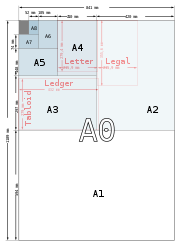
The Copy
from http://tinyurl.com/m6oj4n
And ..THURSDAY, JUNE 11TH, 2009 AT 6:17 PMStrengthening Civic Participation
Posted by Sonal Shah and Robynn Sturm
Sonal Shah is Deputy Assistant to the President and Director of the Office of Social Innovation and Civic Participation, White House Domestic Policy Council, Robynn Sturm is Assistant Deputy Chief Technology OfficerPresident Obama began his career as a community organizer. He understands the power of getting involved in our own communities to shape the issues that affect our lives. Local organizations and solutions are making a real difference in our lives. It is by working together to shape and influence government on the local, state, and federal level that we become more powerful and effective.In our last posting for the Open Government Initiative, we explored how government can create more opportunities for participation in government. Now we address what government can and should be doing to support civil society – non-profits, faith-based organizations, professional associations, and neighborhood schools – in helping to educate and prepare the public to engage with critical public issues and play a more effective role in new, open public policymaking processes. Just as the scientific community trains its professionals to participate in peer reviewing government grants, we want to identify new opportunities and strategies for communities to create the civic literacy to support engagement.What we learned in Phase IYou suggested a number of ideas in the Open Government Brainstorm. Some recommended training neighborhood facilitators in proven dialogue methods to engage a group on issues of common concern. Others underscored the need for civic toolkits, including neutral discussion guides to facilitate community discussions on how to address local problems. Still others suggested forums on national topics, such as combining deliberation and service on Martin Luther King Day and creating a website for groups across the nation to share their conclusions. You can find a longer list of Phase I ideas here.How You Can HelpAs we seek to identify immediate policy changes that will promote greater civic participation, we need to know from you:
- What is the appropriate and most effective role for the government to play in fostering greater civic participation? Should the government develop content, fund the work of organizations that teach civic education, establish platforms to connect communities to each other and to government?
- Do you know of best practices, whether from local, state or foreign governments, or foundations that foster and support civic participation? What are the most effective tools to get people to participate?
- What skills and subject areas are the most important for civic literacy today? How do we promote the kind of civic education necessary to enable people to make greater use of government data, like the information available on Data.gov, or participate in online commenting processes, like this one or regulations.gov?
As always, let us know at the OSTP blog.
The President makes clear that as Congress works through health care reform legislation, it must include fundamental changes that lower costs, ensure Americans have choices, and establish access to quality, affordable health care for all Americans. But what we cant welcome, the President says, is reform that just invests more money in the status quo reform that throws good money after bad habits. (public domain)Clickable Print New York to print and/or a large scale campaign and/or dynamic QR.
The video
http://tinyurl.com/p4f7fq
created at QR code generator
No comments:
Post a Comment